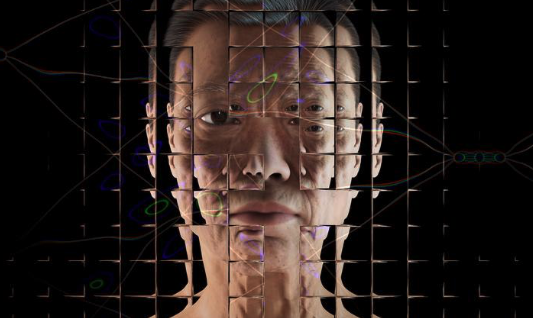Rethinking Desirable AI
-

The Conditio Humana in the Age of AI
What does it mean to be active as a human under technological conditions shaped by algorithmic systems? Drawing on Hannah Arendt’s notion of the Conditio Humana, understood as the ensemble of conditions under which human activity takes shape and acquires meaning, this project sketches a contemporary vision of the Vita Activa. Moving beyond master–slave dualisms, it explores how AI reshapes the quasi-transcendental conditions that render human activity intelligible. In pursuit of a philosophy of co-activity (Mit-Tätigsein), it investigates the entangled yet asymmetrical relationship between human and machine agency and argues that the concept of activity itself must be reformulated in light of these technological conditions.
Project by Dr Jurgita Imbrasaite
-

Feminist Approaches to AI and Technology
Dr Eleanor Drage and Dr Kerry McInerney and spearhead a range of projects on feminist approaches to technology. This includes Feminist AI: Critical Perspectives on Data, Algorithms and Intelligent Machines (OUP 2023); The Good Robot podcast and The Good Robot: Why Technology Needs Feminism (Bloomsbury Academic 2024), which both ask: what is good technology? Is it even possible? And how can feminism help us work towards it?
-

Gendering the Machine
Feminist Ethics in Artificial Intelligence (1960s-present)
This research investigates the role of feminist thought and activism in the history of AI. Focusing on computer programming and education projects such as Logo, it traces how AI engineers, sociologists, and educators recast feminist ethics, epistemology, and developmental psychology across contexts in the US, UK and France, and how their computer projects conceptualised and materialised gender relations in different ways.
Project by Dr Apolline Taillandier
-

Imaginaries of Immortality in the Age of AI
An intercultural analysis
In this research project, I challenge the idea of a universal Western "we," asserting that cultural factors may play an important role in determining the meaning of AI for our relationship to death and immortality. The project is funded by the Schmidt Sciences within the AI2050 Early Career Fellowship.
Project lead: Dr Katarzyna Nowaczyk-Basińska
-

In the Name of Posthumanity
Liberalism, Transhumanism, and the Remaking of Nature
This project explores the history of Anglo-American transhumanism from the 1950s onwards, analysing the various ideological configurations within transhumanist projects ranging from cryonics to superintelligence. The book that arises from this research shows how transhumanism took part in debates about freedom, property, welfare, obligations, and global order, and how in doing so it helped reshape contemporary liberal and neoliberal ideas.
Project by Dr Apolline Taillandier
-

More-than-human-centered AI
Beyond Human-Centrism in Design Practice
In this project, I analyze how ‘more-than-human-centred’ thinking – considering the wellbeing of non-human animals and the environment more broadly – has already begun to feature in technology design practices and how we can leverage this to reorient AI development towards sustainable goals.
Project by Dr Tomasz Hollanek
-

Philosophers of the Digital Age
My current research - and second book project- focuses on the topic of ´Philosophers of the Digital Age´ and examines digital philosophical traditions from Leibniz to the present day. I am particularly interested in how these traditions re-enact current philosophical dilemmas in the digital age and the insights they can lend on these issues.
Project by Dr Audrey Borowski
-

The Global Politics of AI
How AI and Emerging Technologies Are (Re)Shaping International Relations
The Global Politics of AI is an interdisciplinary project that provides cutting-edge research on the geopolitics of AI and the implications of AI development and deployment on international political systems. It also aims to demonstrate how current geopolitical AI relations are shaped and implicated by previous histories of colonialism and political violence.
Project lead: Dr Kerry McInerney
-

The Normative Power of Smartness
Smart cities are a popular technical solution employed across the world. This research questions the normative power of smart discourses as an assimilating force. It interrogates the possible consequences of designing for an idealised inhabitant based on neoliberal production in smart city discourses.
Project by Dr Aisha Sobey
-

Yellow Techno-Peril: Anti-Asian Racism and AI
This project explores how historical forms of anti-Asian racism and xenophobia are reproduced in AI politics and discourse, from the AI arms race narrative between the US and China through to philosophical and fictional manifestations like John Searle's 'Chinese Room' thought experiment.
Project by Dr Kerry McInerney
-

The Politics of ‘Surplus Data’
In this project I propose to examine the politics of ‘surplus data’. As Weatherby, Halpern and others have described in 2022, we no longer inhabit a world of ‘big data’, but rather one of ‘surplus’ data, describing a qualitative – as opposed to a purely quantitative – shift that has transformed governance itself. Data no longer serves just as an abstraction from the ‘real’ world, but rather also as a material agent constantly pursuing better and more efficient insights and systems.
Project by Dr Audrey Borowski
-

Technological Innovation and Space Exploration
There is significant overlap between technology ethics and outer space ethics, and specialized research into this interplay will pave the way for future-focused, real-world solutions to complex ethical problems. Built on a foundation of environmental ethics and global justice research, this work involves multiple publication projects, international collaborations and presentations, and ongoing contributions to the UK SETI Research Network’s Post-Detection Hub.
Project by Dr Chelsea Haramia
-

Critical Thinking in the Age of Generative AI
What is the locus of critical thinking in the age of generative AI? And what is the role of such humanistic, text-based disciplines such as literature and philosophy in a time when GenAIs can produce excellent textual output, at least as far as form is concerned? Drawing on various thinkers and authors from the European South, I pursue two objectives in my research: to understand how technology impacts human thinking and sense of autonomy/freedom; and to rethink the role of the humanities in our times.
Project by Dr Ana Ilievska
-

AI-Ally
Who decides who will be excluded, discriminated against, or simply overlooked by the Artificial Intelligence being developed, trained, and standardized today? The current societal goal is to make AI systems safe and trustworthy — but for whom? A “safe space” for some may not be safe for others in a plural and diverse society. If democratic principles are reduced to majority logic, minorities risk being included only as “special projects,” handled through institutionalized or tokenized framework . . . read more.
Project by Dr Jurgita Imbrasaite
-

In Between Sense and Digital Nonsense
This research investigates a precise philosophical question: are artificial intelligence and their results discernible without incorporating humans? The motivation for this question is an extreme form of De-Anthropocentrized Externalism, slithering away from “the anthropocentric abstractive sweet-spot”. The concept of an abstractive sweet-spot, within its own limitations and vagueness, runs a risk of turning a human into, what I call, “teleofunctional philosophical zombie” - a physical replica of an actual human being whose inside ghost has been translated into desired functions…read more.
Project by Dr. Prashant Kumar
Shaping Desirable AI
-

AI, Journalism, and Communications
In this project, we develop resources that aim to empower journalists, PR specialists, and researchers to communicate the risks and benefits of AI more responsibly: to avoid perpetuating problematic AI narratives, to foster inclusivity and diversity in discussions about AI, and to promote critical AI literacy.
Researchers: Dr Tomasz Hollanek (project lead), Dr Eleanor Drage, Dr Dorian Peters, Raphael Hernandes
-

EU's AI Act in Development Practice
Developed with an industry partner: Ammagamma
As part of this project, we are developing a comprehensive Toolkit: a step-by-step pro-justice compliance platform for developers of high-risk AI. Our Toolkit will assist them with streamlining the process of conducting the mandatory internal control and documentation, while also providing guidance on ethical and social considerations related to their products.
Researchers: Dr Eleanor Drage (project lead), Dr Tomasz Hollanek, Dr Dorian Peters, Yulu Pi
-

Exploring Digital Fatness
How do digital spaces contribute to and resist anti-fat bias? Drawing on feminist, queer, and disabled theories, I question what digital design practices could eschew body normativity and support diversity in online spaces. This project has two core strands; one focuses on app design and self-tracking, and the other on generative AI and representation.
Project by Dr Aisha Sobey
-

Responsible AI Tools
From Big Tech Guidelines to Feminist Ideation Cards
Ethical AI toolkits aim to guide designers in the challenge of reorienting practice towards socially desirable outcomes. But is this challenge ‘kittifiable’? In this project, I analyze the ‘landscape’ of available toolkits – from big tech guidelines to feminist ideation cards – to determine what makes for a useful responsible AI toolkit?
Project by Dr Tomasz Hollanek
-

Sustainable AI Ethics Practice
For this project, we are developing multi-day, multi-phase Ethics Workshops centered on Sustainable AI. By blending core themes with content tailored to fit the needs of our individual partners, we help leaders in design and industry cultivate the mindset needed to stay agile and ethical in our changing world.
Researchers: Dr Chelsea Haramia (project lead), Prof Aimee van Wynsberghe
-

Social AI: Desirable Applications
While there is promise in leveraging the advancements in generative and conversational AI to tackle complex social issues, such as loneliness or social isolation, this particular use case also raises multiple ethical questions and concerns. Through a series of related projects, we are formulating a comprehensive policy and design standards roadmap for Social AI in areas such as: eldercare, mental and physical wellbeing, and grief and thanatology
Researchers: Dr Tomasz Hollanek, Dr Katarzyna Nowaczyk-Basinska, Dr Aisha Sobey
